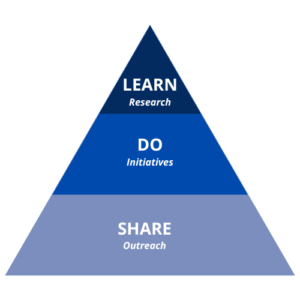We advance modern economic methodologies, metrics, and models that ignite a renaissance in social sector and market innovation.
IEE Mission Statement
Work to Fuel a Global Renaissance
The Institute for Economic Evolution (IEE) is organized exclusively for charitable, educational, and scientific purposes, including, for such purposes. IEE is an exempt organization under 501(c)(3) of the Internal Revenue Code.
We challenge legacy economic norms through academic research and practical initiatives. Our outreach educates and empowers public economic discourse.
Learn. Do. Share.
Research
 The institute supports academic research that challenges the status quo in economics with a first principle mindset. Instead of asking how the economics of new ideas work, we instead ask, “how will economics be changed” when new ideas reach critical points of scale and societal engagement.
The institute supports academic research that challenges the status quo in economics with a first principle mindset. Instead of asking how the economics of new ideas work, we instead ask, “how will economics be changed” when new ideas reach critical points of scale and societal engagement.
Initiatives
By leading, participation, and contributing to a variety of projects, the institute makes sure that our research can be applied to real world challenges. Our initiatives help ensure that the visions, innovations, and executions we produce and propose are viable, today. From our Committee to Cultivate B Corps through our scholarship and online courses, we work hard to ensure our ideas rest on solid foundations.
Outreach
Public participation in economic discourse has been diminished by a misconception that the field is too complex. By design, this has been reinforced by an academically isolated profession whose work restricts personal and community prosperity. We produce and publish programming that works to educate and empower involvement in shared economic dialogue and civil exchange.
